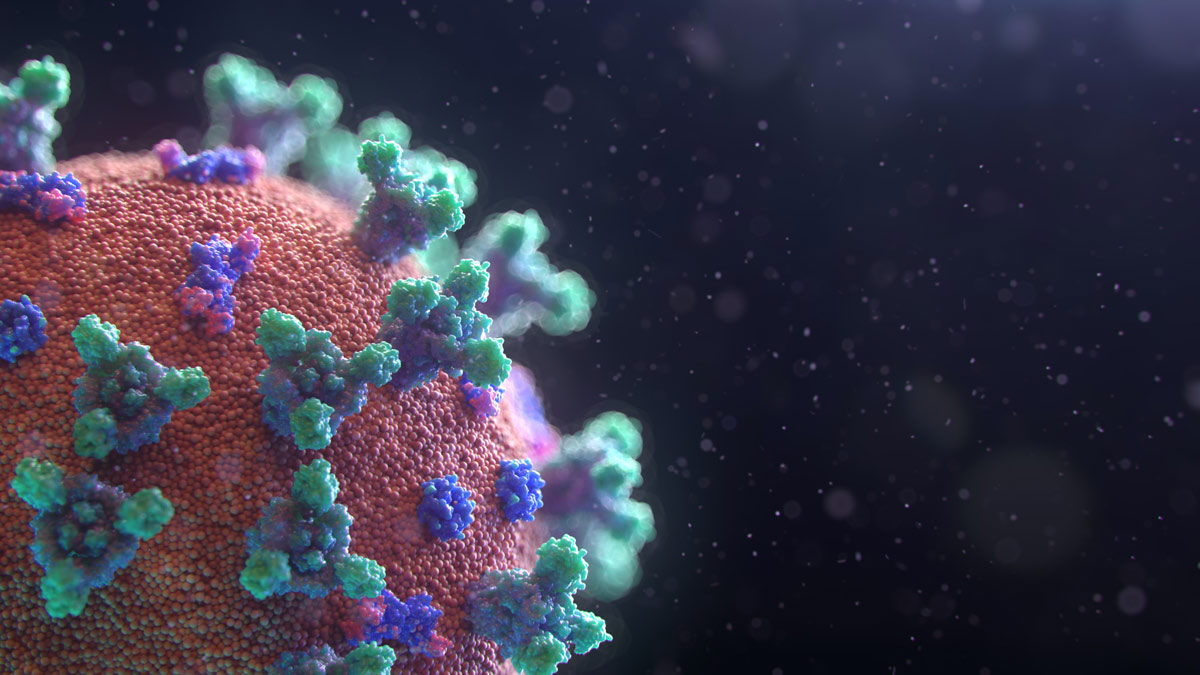
As the world prepares for future waves of COVID-19, the ability to predict mutations in the novel coronavirus even before they emerge will be essential to stopping future outbreaks.

Dr. Natalie Strynadka
UBC faculty of medicine’s Dr. Robert Brunham and Dr. Natalie Strynadka, together with the faculty of science’s Steven Plotkin—along with a team of commercial and academic collaborators—are one step closer to achieving this thanks to a $1.8 million grant from the Digital Technology Supercluster COVID-19 Program, which aims to find solutions to urgent health care needs across Canada arising from COVID-19.
The project, “Predicting the Evolution of COVID-19,” brings together experts in artificial intelligence, computer modelling and structural biology to predict changes to SARS-CoV-2, the virus that causes COVID-19. The findings will inform the early design of effective tests, therapies and vaccines, allowing public health systems globally to prepare and ideally prevent future pandemics caused by evolving strains of the virus.
For the first six-month phase of the project, Dr. Strynadka’s lab is working to generate atomic resolution experimental data—using a cutting edge biophysical toolbox including x-ray crystallography and single particle cryo-electron microscopy—that will in turn help train the computational algorithms to optimally predict future mutations of the virus
“We are incredibly excited about this project, and grateful to the Digital Technology Supercluster for supporting our work,” says Dr. Strynadka, a professor in the faculty of medicine’s department of biochemistry and molecular biology. “Our goal is to harness powerful computational methods to predict mutations in the SARS-CoV-2 virus. We are working to create algorithms that will hopefully keep us a step ahead of the virus and give us the ability to know where future mutations might arise.”
“Our goal is to harness powerful computational methods to predict mutations in the SARS-CoV-2 virus. We are working to create algorithms that will hopefully keep us a step ahead of the virus and give us the ability to know where future mutations might arise.”
Dr. Natalie Strynadka
Dr. Brunham, a professor in the faculty of medicine’s division of infectious diseases and head of the Vaccine Research Laboratory at the BC Centre for Disease Control who was involved in responding to the SARS outbreak in 2003, is lending his expertise in vaccine development.

Dr. Robert Brunham
“We believe the coronavirus spike protein may very well be the basis for a vaccine for this virus,” says Brunham. “This work will be tremendously important in anticipating whether the virus will mutate to escape immunity generated by the vaccine.”
As part of the project, Plotkin’s lab is designing a universal antibody therapy that the virus can’t easily evade through mutation.
“Given past outbreaks such as SARS and MERS, which were also caused by coronaviruses, there is no reason to assume that another pandemic wouldn’t happen again,” says Plotkin, a professor in the department of physics and astronomy and has held a Canada Research Chair in Theoretical Molecular Biophysics. “This is a problem that is not going to go away on its own, so we have to be forward-thinking in finding solutions for it.”
The Predicting the Evolution of COVID-19 project is led by Terramera, a Vancouver-based company that fuses science, nature and artificial intelligence to transform how food is grown and the economics of agriculture. Collaborating partners include D-Wave, Menten AI, Microsoft, and ProMIS Neurosciences.